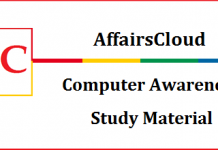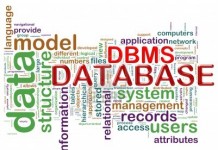The Internet is a collection of computers connected by network cables or through satellite links. The internet is a worldwide computer network that interconnects millions of computing devices throughout the world. Most of these computing devices are traditional desktop PCs, Unix-based workstations, and so called servers that store and transmit information such as Web (WWW) pages and e-mail.

The TCP (Transmission Control Protocol) and IP (Internet Protocol) are two of the most
important protocols in the Internet. The Internet ’s principal protocols are collectively known as TCP/IP. End systems are connected together by communication links.
The Internet allows distributed applications running on its end systems to exchange data with each other. These applications include remote login, file transfer, electronic mail, audio and video streaming, real-time audio and video conferencing, distributed games, the World Wide Web etc.
World Wide Web
In 1989, Tim Berners-Lee at CERN proposed a protocol to exchange documents with colleagues around the world. The idea was that users could search for and retrieve any document on the Internet. The form of the documents was hypertext. This meant any given document could have links to other documents on the Internet. In a strict sense, the World Wide Web was this interconnected system of documents.
Web Browsers
A browser is a special software program also known as a client that requests servers for a specific web document and renders it on the computer terminal for the user. One of the oldest browsers is Lynx. This is a text only browser. The earliest graphical browser was Mosaic developed at the National Center for Supercomputer Applications (NCSA) at the University of Illinois. There are other browsers available – Mozilla, Opera, Chrome, IE, and Safari. The browsers communicate with the servers using the standard Hypertext Transfer Protocol (HTTP).
Web Servers
A web server is a software program that provides documents to browsers. Apache is the most widely used web server with 68% of the market share. Second is Microsoft’s Internet Information Server (IIS) with about 21% of the market share. And the remainder is spread over a large number of other servers. A web browser initiates a request with a server by sending it the URL of a document. The server searches, retrieves and sends the document.
URL
Uniform (or universal) resource locators are used to identify documents or resources on the Internet. A URL has two main components: Protocol identifier and Resource name. For the URL https://affairscloud.com, the Protocol Identifier is http and the Resource Name is affairscloud.com.
HTTP
HTTP stands for Hypertext Transfer Protocol. It is an application protocol for distributed, collaborative, hypermedia information systems. it is the foundation of data communication for the World Wide Web. Hypertext is structured text that uses logical links (hyperlinks) between nodes containing text.
DNS
DNS stands for Domain Name Servers. They are the Internet’s equivalent of a phone book. They maintain a directory of domain names and translate them to Internet Protocol (IP) addresses. This is necessary because, although domain names are easy for people to remember, computers or machines, access websites based on IP addresses.
E-Commerce
E-Commerce refers to Electronic Commerce. It is nothing but trading of products or services using internet. The companies such as Flipkart, Snapdeal, Alibaba are all E-Commerce companies.





